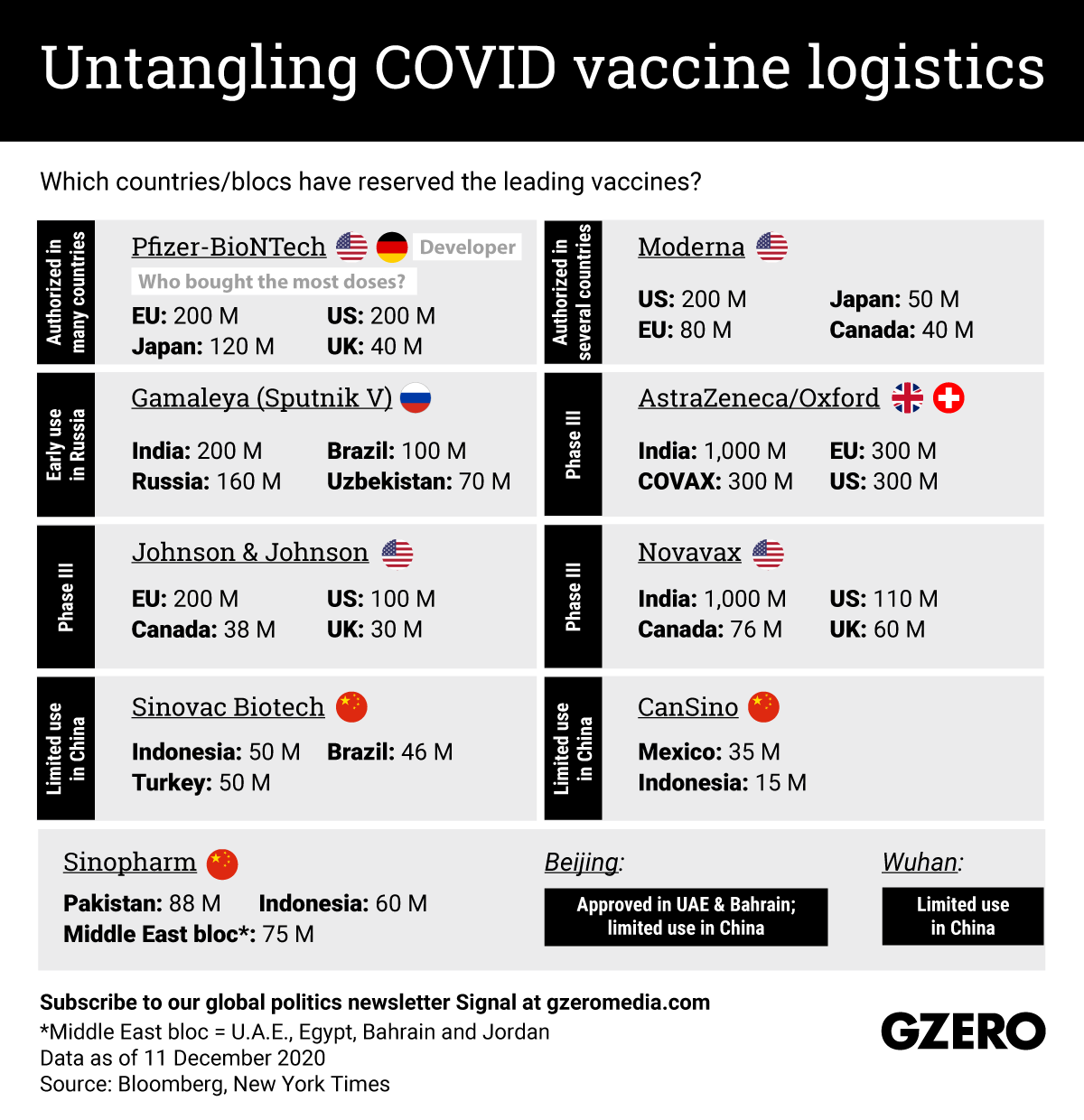December 23, 2020
The mammoth task of distributing COVID-19 vaccines is well underway after the US, EU and other countries approved the Pfizer-BioNTech drug for use. The Moderna vaccine has now also been authorized by the US Food and Drug Administration. Some hospitals and medical centers have even boosted security to stop line jumpers and robberies of the much-coveted doses. But many countries, particularly in the developing world, haven't secured access to the Pfizer drug, produced in the US and Belgium, and have instead inked deals with Russia and China who are working on late-stage vaccine trials of their own. The logistical challenge associated with shipping vaccines around the world — and prioritizing those who need it most — is huge. We take a look at the current state of play: who is producing the leading vaccines, what stage of the trial process have they reached — and, importantly, which nations have snatched them up?
More For You
French President Emmanuel Macron, German Chancellor Friedrich Merz, Ukrainian President Volodymyr Zelenskiy, U.S. Special Envoy Steve Witkoff and businessman Jared Kushner, along with NATO Secretary-General Mark Rutte and otherEuropean leaders, pose for a group photo at the Chancellery in Berlin, Germany, December 15, 2025.
Kay Nietfeld/Pool via REUTERS
The European Union just pulled off something that, a year ago, seemed politically impossible: it froze $247 billion in Russian central bank assets indefinitely, stripping the Kremlin of one of its most reliable pressure points.
Most Popular
Sponsored posts
Consumers are spending–just not evenly
What's Good Wednesdays
What’s Good Wednesdays™, December 17, 2025 – holiday movie edition
Walmart’s $350 billion commitment to American manufacturing means two-thirds of the products we buy come straight from our backyard to yours. From New Jersey hot sauce to grills made in Tennessee, Walmart is stocking the shelves with products rooted in local communities. The impact? Over 750,000 American jobs - putting more people to work and keeping communities strong. Learn more here.
Of all the threats to the world, what are the top 10 most urgent global risks for 2026? On Monday, January 5, at 12 pm ET, join us for a livestream discussion with Ian Bremmer and global experts to discuss the Top Risks of 2025 report from Eurasia Group. This report will mark twenty years of Ian Bremmer’s annual forecast of the political risks that are most likely to play out over the year. Event link: gzeromedia.com/toprisks
In this episode of Tools and Weapons, Microsoft Vice Chair and President Brad Smith sits down with Ed Policy, President and CEO of the Green Bay Packers, to discuss how purpose-driven leadership and innovation are shaping the future of one of the world’s most iconic sports franchises. Ed shares how technology and community-focused initiatives, from Titletown Tech to health and safety innovations on the field, are transforming not just the game of football, but the economy and culture of Green Bay itself. He explains how combining strategic vision with investment in local startups is keeping talent in the Midwest and creating opportunities that extend far beyond Lambeau Field.
Subscribe and find new episodes monthly, wherever you listen to podcasts.
© 2025 GZERO Media. All Rights Reserved | A Eurasia Group media company.
